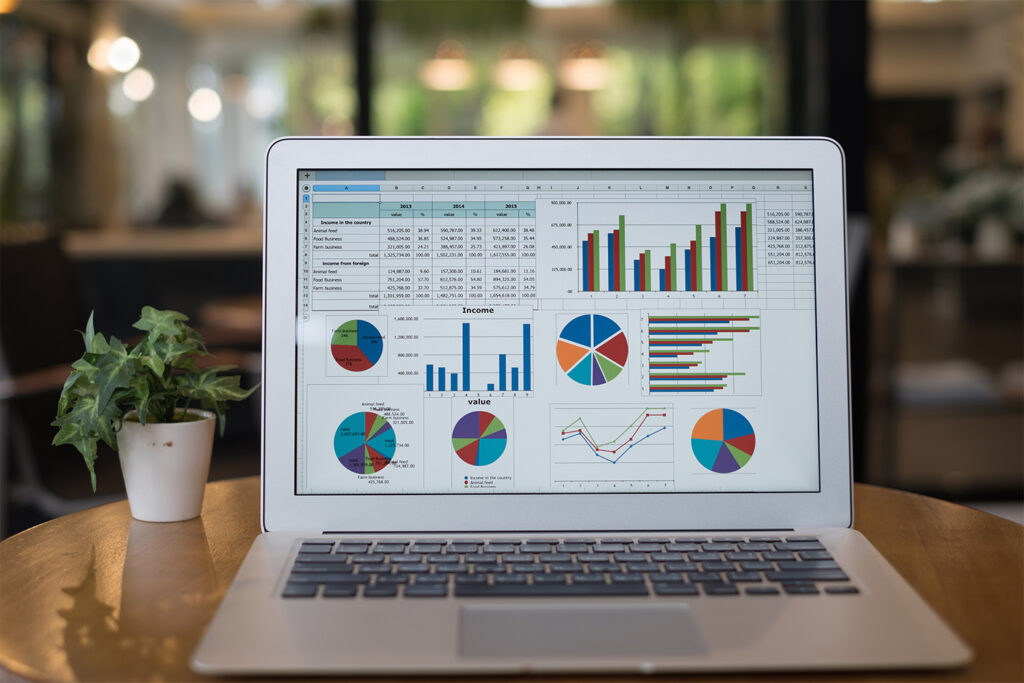Business owners often feel like they have to be “jacks of all trades” — from marketing to sales and everything in between. However, one area where it can be difficult to learn as you go is accounting. Sometimes no matter how hard you try, you’re just not a numbers person.
Thankfully, there are accounting tools out there that can help manage your numbers for you. So here are some of the best ecommerce accounting software tools of 2021:
Why Use Ecommerce Accounting Software?
While it may be possible to run an ecommerce business without accounting software, it’s certainly not ideal. So if your business has grown to the point where you’re struggling to handle the bookkeeping on your own, you may want to consider using accounting software to do the heavy lifting for you. If you’re still not convinced that accounting software is worth the investment, here are some key areas where you can benefit from it:
- Financial reporting: Ecommerce accounting software can help provide you with a better understanding of how your business is performing with financial reports. Many of these reports and insights are automated so that you can quickly and easily stay up-to-date on the money you’re bringing in and the money you’re spending. Furthermore, this information is tracked over time, which allows you to see trends and be proactive if you see that things are heading in the wrong direction.
- Bookkeeping: Ecommerce accounting software can help you practice accurate bookkeeping. Again, a lot of this can be automated directly from your online selling platforms and payment processors — effectively leaving no room for error. If errors do occur, the system is easily able to recognize it and address it.
- Taxes and audits: Ecommerce accounting software can help you when it comes to taxes and be better prepared for potential audits. Taxes will be easier since all your numbers are in the right place and are more accurate. And in the case of an audit, it’s easy to pull all of the required information.
Different Types of Ecommerce Accounting Software
There are three different types of ecommerce accounting software to consider: cloud-based software, cloud, and desktop software, and desktop software. Let’s discuss each one in detail so that you can make the best decision for your business:
1. Cloud Software
Cloud software stores all of your data and information in a “cloud.” This cloud allows you to access your data and information from anywhere — making it great for businesses or people constantly on the go. And while cloud-based accounting software is certainly convenient, there’s a certain amount of risk involved wherein hackers could potentially access your data and information through the cloud. With the right security features and due diligence on your part, however, you can protect your information from hackers.
2. Cloud and Desktop Software
Cloud and desktop software may just be the best of both worlds. You can choose to store some information in the cloud to be easily accessed in different locations. On the other hand, you can choose to store some of your more sensitive information on the desktop where it’s more safe and secure.
3. Desktop Software
Desktop software can only be accessed on a desktop computer with the installed application. And while this may limit your access, it can improve your security measures and help give you peace of mind that your data and information are safe.
Key Features to Look for in Ecommerce Accounting Software
While every ecommerce business is different and may need different features in accounting software, here are some features to look for that are useful across the board:
- Automation: Your accounting software should make your life easier and take tasks out of your hands through automation. For instance, some accounting software offers automated billing, payments, and cash flow so that you don’t have to lift a finger.
- Integration: Your accounting software should be able to integrate with your other platforms. For instance, your ecommerce selling platform should be integrated with your accounting software so that you don’t have to enter everything manually. Your payment processor should also be integrated with your accounting software to record and manage transactions automatically.
- Accessibility: Your accounting software should be easily accessible by multiple different users across departments to keep everyone on the same page. Furthermore, your accounting software should also be easily accessible on the go, thanks to cloud storage capabilities.
- Updates: Your accounting software should constantly be updated and improved upon with new features and tools that you can use to run and manage your business. Most of these updates can be automated so that you don’t have to take the time to install them manually.
The 6 Best Ecommerce Accounting Software
So which ecommerce accounting tools have these key features? Here are the six best ecommerce accounting software options out there:
1. QuickBooks
QuickBooks is incredibly popular accounting software that’s frequently used by small- and medium-sized businesses. One of the biggest advantages of QuickBooks is that it can be easily integrated with Shopify and BigCommerce. Another advantage of QuickBooks is that it offers an automatic daily sync feature in which all of your orders and refunds are imported into the system.
The basic features of QuickBooks are easy to use and come included with the “Online” version. However, there are additional features that you can pay extra for or get through the “Commerce” version. QuickBooks pricing starts at just $25 a month for a single user, with prices going up from there. And although these prices may be higher than other tools, the features offered by QuickBooks make the price worthwhile.
2. Wave
Wave is web-based accounting software that’s perfect for ecommerce brands and other small businesses. Wave offers integrations with either your Shopify store or your WooCommerce online store. This tool makes accounting easy, thanks to double-entry accounting. It also offers professional invoicing.
In terms of security, it uses 256-bit encryption for maximum protection from hacks and leaks. The best thing about Wave is the price — many features are free of cost with no fees, hidden charges, etc. That being said, you do have to pay for payment processing and payroll if you want to utilize these features.
3. FreeAgent
FreeAgent is cloud-based accounting software that comes with a mobile application to allow you to manage all of your important accounting tasks on the go. FreeAgent is so easy to use that small business owners love how much it takes off their shoulders. It offers estimates and invoices; expense, income, and profitability reporting; time tracking; and bank connections for transaction imports.
Despite the name, FreeAgent isn’t free. It’s pricier than many other options. The good news is that they’re currently offering a new customer offer for 50% off your first six months. This means that you pay $12 a month for the first six months, then $24 a month after that.
4. FreshBooks
FreshBooks accounting software is ideal if you have limited inventory as it’s limited in this aspect. However, it excels at double-entry accounting, helpful business insights, and invoicing. It also offers automated bank reconciliation. At the same time, it’s unable to calculate sales tax rates for you.
FreshBooks Lite is the cheapest plan that costs $15 a month for five billable clients. FreshBooks Plus costs $25 a month for 50 billable clients. Finally, FreshBooks Premium costs $50 a month for 500 billable clients.
5. Xero
Xero is web-based accounting software that is perfect for growing ecommerce businesses. If you’re sick of using different tools for different functions, Xero allows you to place everything under the same roof. Xero’s features include inventory and stock management, bank reconciliation, contact database and segmentation, invoicing and payments, and payroll.
There are mobile applications available for Xero so that you can access information on the go. Xero offers competitive pricing options that all include unlimited users. Xero Early costs $11 a month for 20 invoices and five bills. Xero Growing costs $32 a month for unlimited invoices and bills. Xero Established costs $62 a month for multiple currencies.
6. Sage
Sage is cloud-based accounting software that has made a big name for itself in its feature offerings. That being said, the software is designed for accountants than small business owners without an accounting background. It offers core accounting, project accounting, expense management, and compliance management all in one tool.
Sage Start costs $10 a month, and Sage Accounting costs $25 a month. However, Sage is currently running a 60% off offer for the Accounting package so that it only costs $10 a month for the first six months.
Wrap Up on Ecommerce Accounting Software
And there you have it — the best ecommerce accounting software tools of 2021! If you need help choosing the right one for you or handling other aspects of your ecommerce business, feel free to reach out to Greg Gillman. Greg Gillman works with direct-to-consumer businesses to help them grow and expand their operations and revenue.
Sources:
How to Ensure Your Audit Process Goes Smoothly (Even When Something Goes Wrong) | Forbes
Cloud Versus Desktop Accounting: Which Is Better for Your Business? | Entrepreneurship Life
5 Best Ecommerce Accounting Software in 2021 | Fit Small Business


